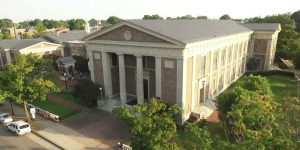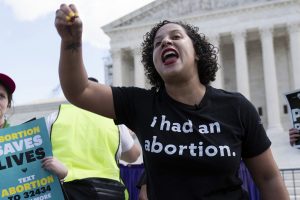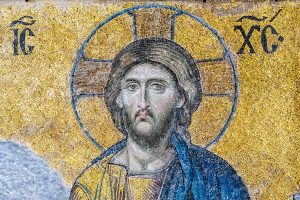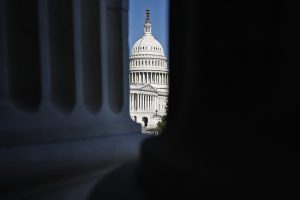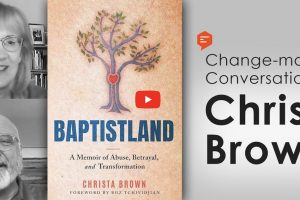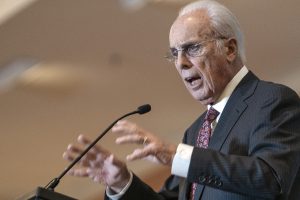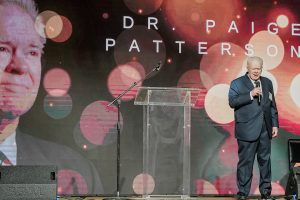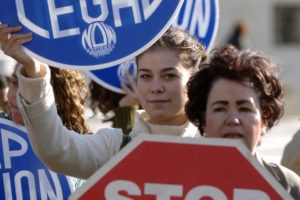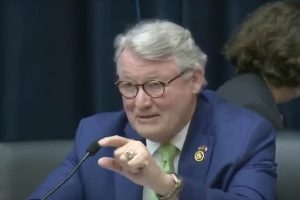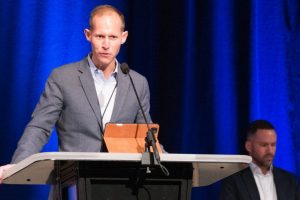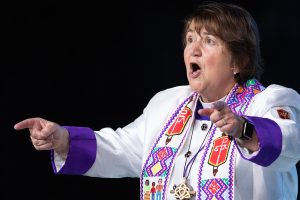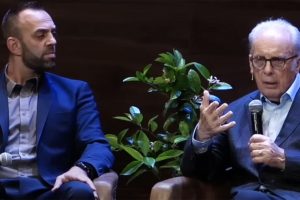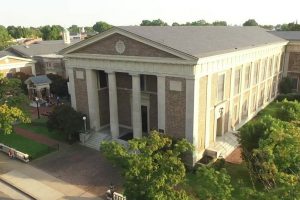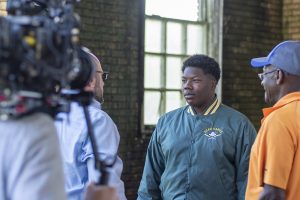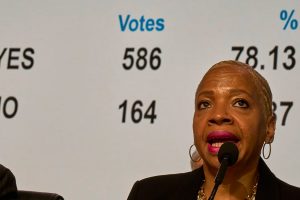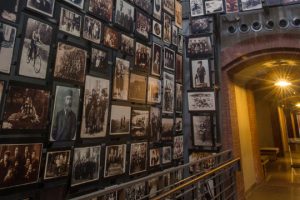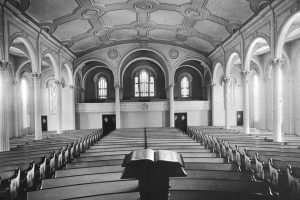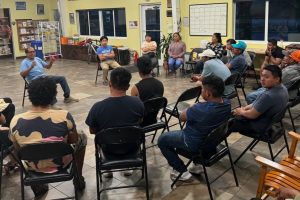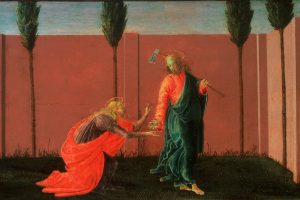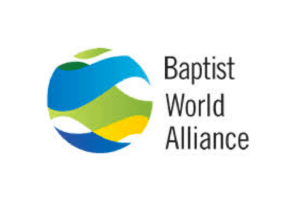BOCHUM, Germany (ABP) — A German Baptist theologian, who was cited as an example of “aberrant and dangerous” theology within the Baptist World Alliance, says the Southern Baptist committee that leveled those charges is guilty of lying and should repent.
“… [A]ll of your allegations are totally unsubstantiated,” Erich Geldbach said in a Dec. 29 letter to Morris Chapman, chairman of a Southern Baptist Convention study committee that is proposing the SBC withdraw its membership and financial support from the Baptist World Alliance.
“Your Committee is therefore guilty of trespassing at least two commandments: 'Thou shalt not bear false witness against thy neighbour' (Exodus 20:16) and 'Lie not one to another' (Colossians 3:9),” Geldbach wrote.
Chapman, president of the SBC Executive Committee, and eight other prominent Southern Baptists serve on the special committee, which accused the BWA of questioning biblical inerrancy, promoting women as pastors, and downplaying the doctrine of salvation only through Jesus.
The committee's report, released Dec. 17, cites as an example of the BWA's “leftward drift” a 1997 presentation by an unnamed “German Baptist theologian” to a BWA-sponsored meeting of Baptist theology professors in Vancouver, British Columbia.
“In a theological workgroup,” the SBC report noted, “Dr. Ken Hemphill was asked to deliver a paper on 'The Great Commission of our Lord.' After a superb paper, one respondent chosen by the BWA to participate replied, 'I am not even sure that there is any such thing as the Great Commission, but if there is I am confident that Jesus never said it.'”
Geldbach, in his letter to Chapman, said the unnamed theologian could only be him, since “to my knowledge no other German theologian was present.” Geldbach was one of three people asked to respond to the presentation by Hemphill, then president of Southwestern Baptist Theological Seminary.
“It is of utmost importance for me to point out that nowhere in my response to Dr. Hemphill's paper is there any such foolish statement as your committee suggested by giving a direct quote,” Geldbach wrote. “What is being presented as a direct quote is neither my language, nor could I identify with such a statement, which I would dismiss as theological trash.”
With his letter to Chapman, Geldbach included a copy of his 1997 response to Hemphill. “Should you find anywhere in my response a sentence that comes even close to your quote of what I was supposed to have said, then language, as means of communication, no longer works,” the professor said.
The copy Geldbach provided of his response does not include the quotation cited by the SBC committee. However, Geldbach questions Hemphill's assertion that the Great Commission (Matthew 28:19-20) should be the “central focus of the entire seminary experience” or “the heart of theological education.”
“My conclusion,” Geldbach wrote, “is that we should not try to distill one particular form of evangelism from the New Testament, but leave open the option to have a great variety of approaches which differ from country to country, from culture to culture, from continent to continent.”
A comprehensive view of evangelism should include a response to injustice, hunger, unemployment and racism, Geldbach wrote. “Have all of these problems nothing to do with evangelism and seminary teaching that flows from evangelism?”
“Unless the good news becomes 'good' for people who have been denied any 'goodness' in their lives, evangelism is endangered to become an ideological weapon,” he wrote.
Chapman declined to comment on the specifics of Geldbach's letter. He told Associated Baptist Press that the letter was e-mailed Dec. 31 to members of the SBC study committee, which may respond later.
defended the study committee's recommendation, which he said “is to withdraw from an organization but not from Baptists wherever they may live in the world. The Southern Baptist Convention will continue to build strong relationships with our Baptist brothers and sisters around the world and very much look forward to every opportunity for fellowship.”
“The final recommendation of the SBC/BWA Study Committee came down to one paramount question, “In this generation, does the BWA best represent the Southern Baptist Convention to the world, or would the SBC better represent itself to our Baptist brethren everywhere?” Chapman told ABP.
The proposal from the study committee, which the Southern Baptist Convention is expected to approve in June, would end the SBC's century-long membership in the Baptist World Alliance and delete the SBC's $300,000 annual contribution to the BWA. The report encourages the SBC and like-minded Baptists to form a new international organization committed to inerrancy, the substitutionary atonement of Christ, the sanctity of human life, evangelism and other conservative causes.
In his letter, Geldbach noted he was not “chosen by the BWA” to respond to Hemphill's paper, as described by the SBC committee, but by the conference organizers, who included a prominent Southern Baptist.
Geldbach also disputed the study committee's charge that the moderator of the 1997 theological workgroup “not only did not take issue with this German Baptist theologian, but also protected him, allowing him to refuse to respond to certain questions about universalism.”
Geldbach said the questions about universalism came from Paige Patterson, now president of Southwestern Seminary and a member of the SBC study committee, during a question and answer period at the end of the workshop.
“His question was a very difficult one, even though I sensed at the time that he was not genuinely interested in a differentiated answer,” Geldbach wrote. “Since English is not my mother tongue, I whispered to the moderator to take the next question to give me some more time to think and prepare an answer. The moderator did so. The next question was not directed to me, but someone else on the panel. It took that person a long time to answer, so that the time for the session was over, and the moderator had to close the meeting before I could be given a chance to reply.”
Patterson was traveling outside the country Jan. 6 and could not be reached for comment. Patterson was the primary author of the study committee report and the source for the account of the encounter with Geldbach in Vancouver, Chapman noted.
While the SBC study committee accused the BWA of preventing an “open discussion” of theological differences, Geldbach said it is intimidation from the SBC that is limiting fair debate among Baptists. “You create an atmosphere of mistrust, suspicion and ill feelings, of which the report of your committee is but another sad example,” he wrote.
“Consequently, I beseech you in the name of our triune God whom we try to serve, Father, Son and Holy Spirit, to repent and turn from your wicked ways. If you do this, I would be overjoyed and not ask for an apology,” the letter concluded. “May the grace of our God give you his wisdom so that you may discover that other allegations in your report are equally false and unsupported by any evidence.”
-30-

